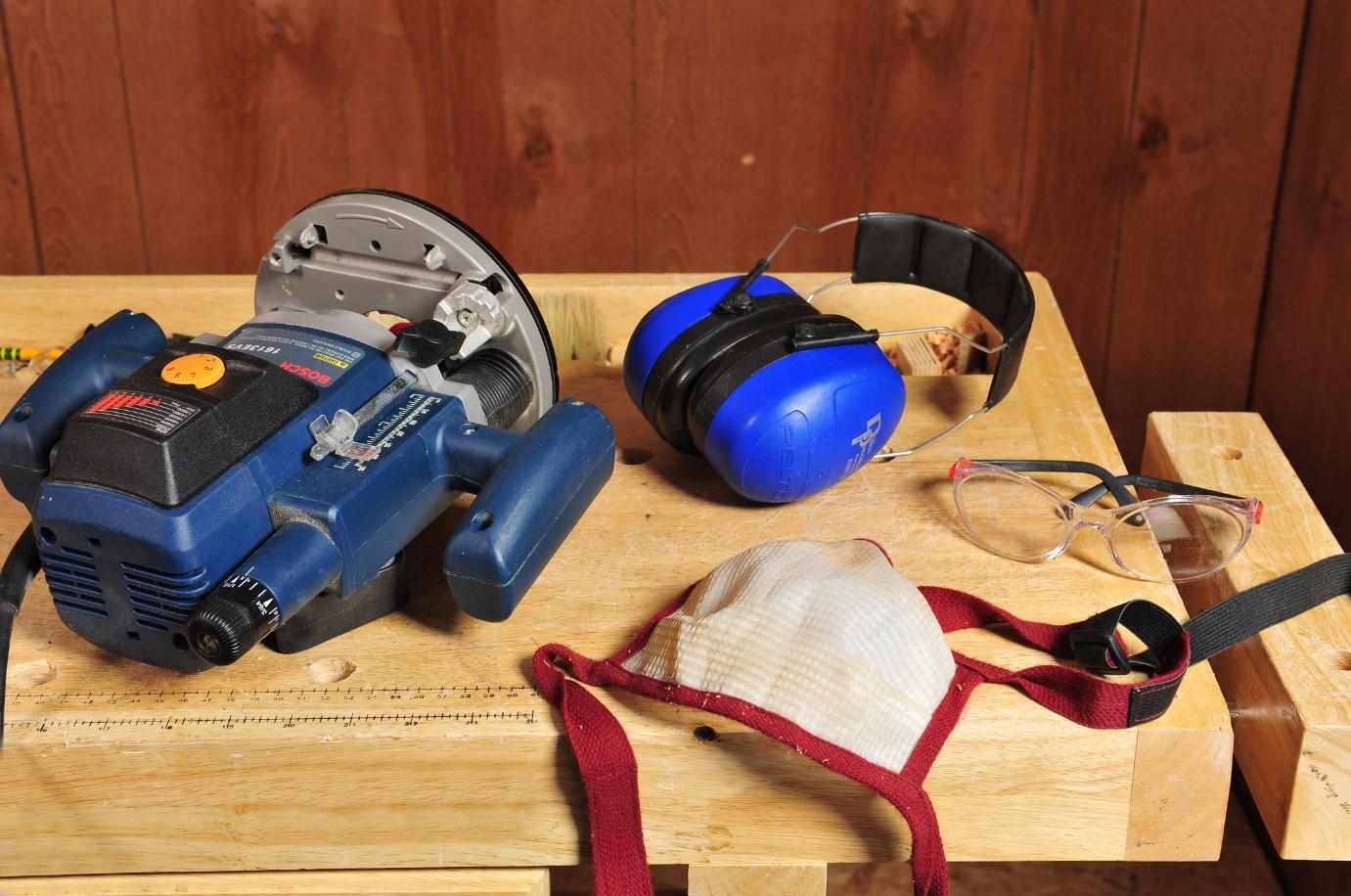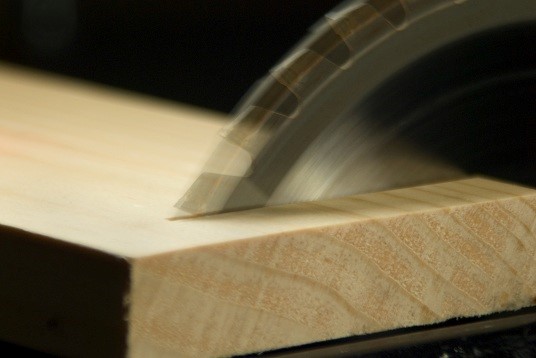Whether you carry out woodwork for your job or as an enjoyable hobby, there are some basic safety guidelines that everyone should follow. Getting sloppy or rushing can lead to accidents and injury, so if you don’t this to happen in your workshop, follow these tips:
- Always use safety equipment
It is imperative that you always use the appropriate safety gear. This can include ear protectors for working with noisy tools, gloves for using finish and safety glasses for all work. Get into the good habit of putting them on when you enter the workshop and not taking them off until you leave.
To avoid breathing in dust and associated health problems, always make sure any ventilation is functioning well and any ventilation systems are regularly maintained. For dust removal components such as a Spiral Duct, visit Dust Spares.

- The right clothing
Loose fitting clothing is not advisable. Imagine the consequences of getting it caught in a cutting head or blade. Your clothing should be comfortable for working in but also protective. Remember to remove any jewellery that might dangle like chains and bracelets.
- Avoid alcohol and drugs before working
Working with tools and intoxicating substances do not mix well. If you feel even a tiny bit under the influence of anything, do not go into the workshop until the effects have worn off.
- When changing blades, always disconnect the power
When changing a bit or blade on a power tool, always turn off the power before doing so. For obvious reasons, this can prove disastrous and many a woodworker has suffered severe injury by neglecting this essential rule.

- One extension cord
Don’t use one extension cord for each tool but one in total. By doing this, you will ensure that you’re forced to change the cord over before you can use another power tool. This method keeps you far more aware of needing to disconnect from the mains when changing blades, for example.
- Beware of screws, nails and bits of metal
When you’re preparing to cut, always check for any nails or screws. As you can imagine, a fast spinning saw blade and a nail don’t make a great mix. You will possibly damage your cutting head, cause the wood to kick back and cause an injury. Many woodworkers choose to run a metal detector over the stock before commencing work.
- Try not to get distracted
Distractions can’t always be avoided, they are a part of everyday life. Should you get called or distracted while operating a power tool, always bring the cut to a safe end before switching the tool off at the mains and dealing with the distraction. Trying to deal with the distraction or turn away from a power tool while still operating it is an absolute recipe for disaster.

